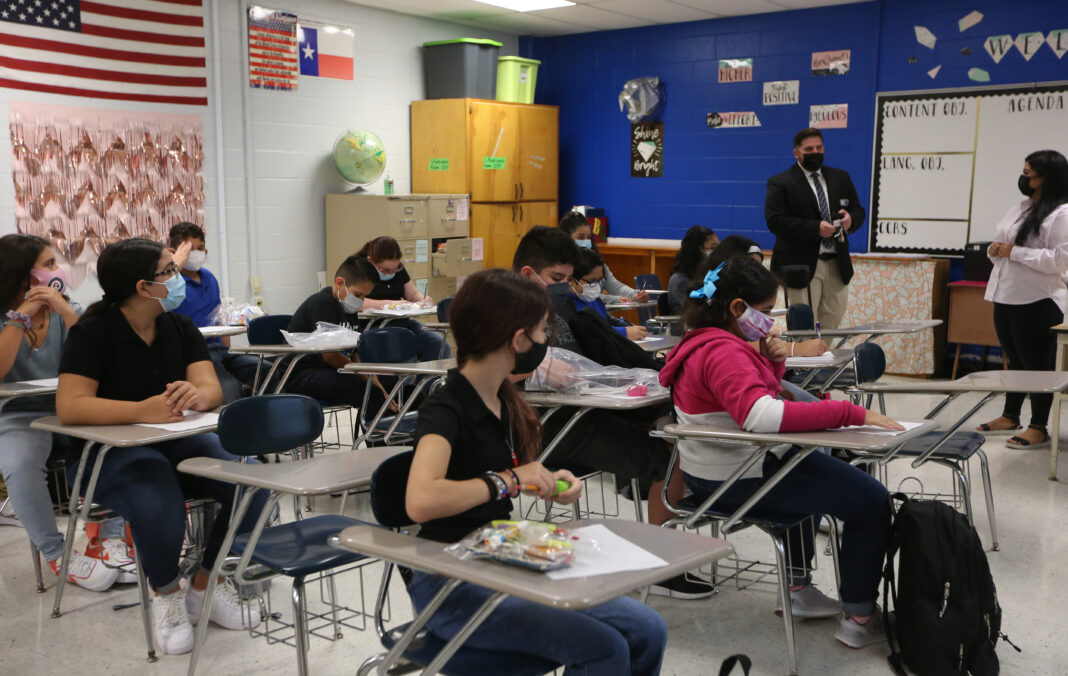In just a few weeks discussions regarding the coronavirus pandemic has shifted from asking students to wear masks to matters of greater consequence. Many schools across the country, the Rio Grande Valley included, are looking beyond the current situation and taking steps to prepare for future action, and deserve praise for doing so.
The changing nature of the pandemic has shifted attention to different groups in our society. The group affected most severely in the initial wave of COVID-19 infections were the elderly, and the first major treatment focus, and the first target for vaccination, were among nursing home residents and people of advanced ages. The original generations of the virus seemed to have little effect on children; few were infected and usually symptoms were minor.
All that has changed with the delta variant, which appears to attack young and old alike. Almost all hospitalizations and deaths reported in recent months have been unvaccinated, including children who for whom inoculation was first deemed unnecessary.
In response, several schools in the Valley and across the state are openly defying Gov. Greg Abbott’s prohibition on requiring students to wear face coverings. Moreover, as health officials determine existing COVID-19 vaccines safe for teenagers and perhaps younger people, some school districts, including Brownsville public campuses, have started taking steps to provide the vaccine to their students.
BISD officials this week said freezer space was being set aside at its campuses to store the vaccines, some of which must be kept at below-freezing temperatures.
This is a preparatory step; officials currently don’t know if student vaccinations will be required, or provided.
With information still being gathered about the coronavirus, it still isn’t known if it might eventually be placed on the list of diseases for which vaccines are required — such as mumps, rubella and polio. Given Abbott’s current opposition to such precautions, we don’t expect any such action at least until after the 2022 gubernatorial election.
Still, we encourage schools to consider offering the vaccinations, even on a voluntary basis. The process could be as simple as giving all students a parental consent form, and inoculating those who being them back.
Another noteworthy step schools are taking is the publication of campus COVID-19 data. Schools are required to inform parents and the public about campus health, security and safety issues, but the governor waived that requirement for Texas schools. Still, many if not most schools have chosen to release that information, even posting it daily on Facebook and other social media pages.
This is a laudatory act. Some people suspect that at least some schools are reluctant to issue public alerts, fearing negative perceptions they might cause. COVID-19 disclosures, however, suggests that schools recognize the importance of full disclosure. Most likely, schools that are transparent probably garner more public confidence and trust than those who are suspected of keeping secrets.
We continue to hope that COVID-19 proves to be a unique pandemic that eventually goes away, rather than a permanent presence that requires constant precautions. It’s good to see that our schools are doing their part in the fight against the virus.




